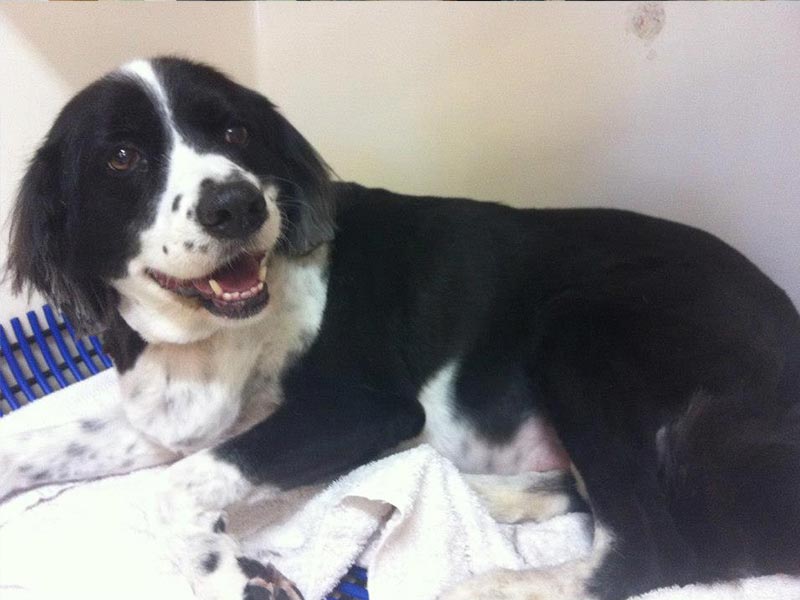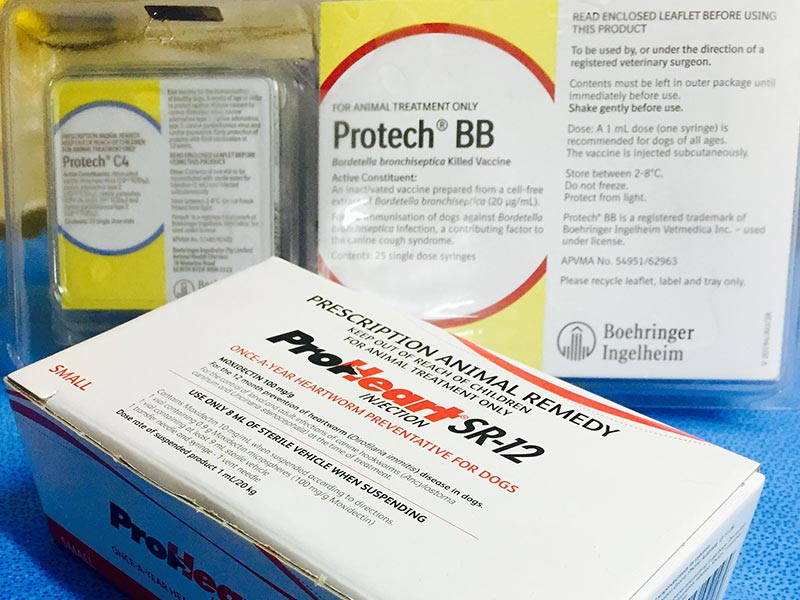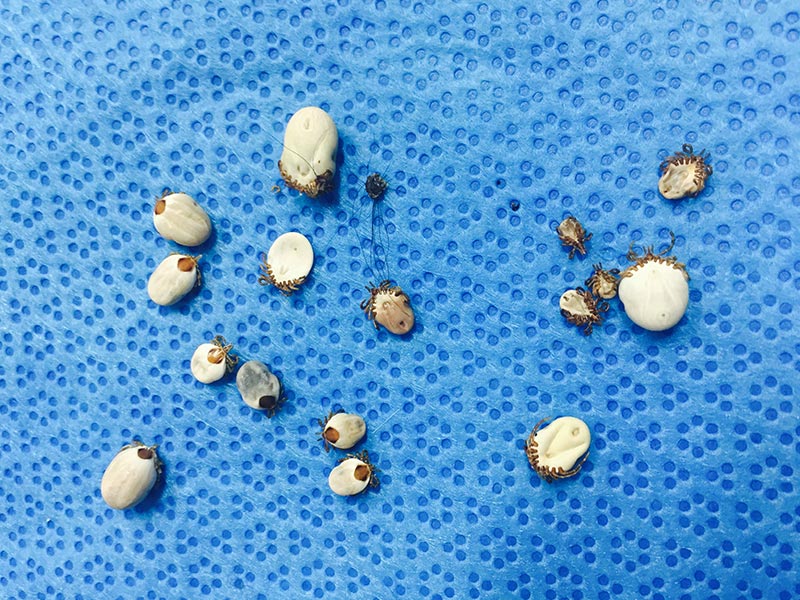Veterinary Services

Veterinary Services
Our staff at Mooloolaba Veterinary Surgery can provide your pet with a full range of medical and surgical care to help keep your pet in good health. We also provide dental care, special diets and skin care products. To keep your pet looking fantastic on the outside as well as being healthy on the inside we can wash, groom and clip toe nails (if they are too long).
We can perform routine diagnostic radiographs and we have a specialist who performs ultrasounds at our surgery for our clients. A full range of diagnostic blood and tissue testing is available with some performed in-house and others referred to a large diagnostic laboratory.

We also offer:
- Basic Health Care Tips (Know what is normal for your pet, some routine maintenance, and when to see the Vet)
- Vaccinations and Heartworm Annual Injection
- Worming
- Fleas & Ticks
- Microchipping (special price)
- De-Sexing (Spay, Castration)
- Dental Care (prices start from $320)
- Illness and Accidents
- Tick Treatment
- Surgery
- Diagnostics - imaging, radiographs, ultrasound, laboratory blood sample and histopathology

Basic Health Care
Step One: Know what’s normal for your pet
Good health care often begins with spending some quality time with your pet and getting to know where all the normal lumps and bumps are and how it typically behaves. These things will change over time, some pets will become less active some will get pigment spots. Most owners will notice something has changed either physically or in behavior and it may be the case that something has suddenly happened. But a lot of long term diseases can go on for years, unnoticed, slowly changing, before there is a sudden change that the owner does see. Don’t be confused by “symptoms” or changes which may be normal, one of the classic things that owners tend to notice, is a hot/cold/dry/wet nose. More significant changes in older pets such as weight loss, increased drinking of water and persistent coughing are worth looking into.

Step Two: Routine maintenance
Just like your car, your pet needs some Routine maintenance and a few once in a lifetime procedures. Vaccinations, worming and flea treatment needs to be done on a regular basis while de-sexing, and microchipping are done once in a lifetime. Also like your car, you can insure your pet against accidents or expensive repairs. Insurance is an optional extra, if you really want the best care for your pet, it’s worth having.
To make it easier to remember when these routine care items are due; mark your calendar or pop a reminder in your phone; even though everyone knows about vaccinations, worming and fleas, they can be very easily forgotten in a busy family.

Vaccinations and Heartworm Annual vaccinations
Cats
All cats with exposure to outdoors cats should have an annual vaccination; in-door cats who never go outside have a reduced chance of catching a respiratory virus. These days most of these viruses cause mild symptoms except for the very young and old. Even though the symptoms are mild they can be carried by the cat lifelong and the symptoms can return when the cat is stressed. Much like cold sores in people. Some symptoms such as sneezing, oral ulceration, eye discharge with conjunctivitis may indicate the presence of a viral reoccurrence.
Dogs
We recommend the five in one C5 vaccine as a routine vaccination, it gives the best coverage for “kennel cough” which is one of the commonest things that we vaccinate against. Leaving out protection against the most likely thing for your dog to catch doesn’t make a lot of sense.
Heartworm Annual Injection can be done at the same time as your pet dog’s annual vaccination. While the injection can be given at a young age, this can be quite expensive initially, and it may be less costly to use a tablet monthly or a spot-on medication until the pup is near it’s adult weight (between 6 and 10 months old).

Worming, Fleas & Ticks
We have placed a list of the currently available products later in the text, sometimes you may need to try a number of products until you find the one that works best for your pet.
Don’t get discouraged if you can’t control a heavy flea infestation with one dose or even a few doses of a product. Fleas are common, and they are common because they are very hard to kill, in some of their life stages, often you will need to continue treatment until all of the eggs have hatched out and grown into adults. The best way to control an early flea infestation is to kill the adult fleas before they lay eggs or if large numbers of eggs are already present, you need to remove the adults with a product before they lay more eggs which will keep the problem going. If you have a real flea plague it may take months before all the fleas are gone. People do taste bad to fleas, but they may give you a quick nibble if there are a very large number of fleas and they are starving; if you are being nibbled on you probably have a lot of fleas around.

Microchips
A microchip implant identifies your pet for life. Once the chip is in place, keep your contact details up to date with the microchip registry office (don’t lose your paper work), if you change your phone number or address, let them know. We see a lot of lost dogs and cats at the surgery; sometimes we can even let owners know their pets have wandered off; before they realise they are gone.

De-Sexing
We recommend all pets not being used for breeding purposes be de-sexed at an early age, usually 5 to 6 months old. As well as all the health benefits gained by early de-sexing, most pets have positive behavioural outcomes with a decreased urge to wander and decreased aggression. There is also a cost saving in early de-sexing, older pets, and large or obese pets will be more expensive to de-sex, due to the increased difficulty of the procedure.

Step three: When to go to the Vet
Is your pet sick? Most pets will get sick at some time in their lives; most of the time it will be only a minor illness, a bit of an upset tummy or itchy skin, but sometimes it can be more serious.
Try to gather as much specific information as you can about why you think your pet is ill, before going to the Vet ( make a written list, don’t leave out things that may be important; like you saw him eat a lump of rat poison three days ago). Avoid if possible statements like, “He is not himself to-day” or “He is acting funny”. Try to work out why you think these things; what is your pet doing that makes you worried. It will help us track down where the problem may be hiding.
It’s not possible to list here, all the things that may indicate something more serious is happening; but, if you think you pet might be seriously ill don’t wait until five minutes before we close for the day, to make an appointment, early attention is a good idea.

Dental Care
We offer a moderate cost dental cleaning service, we can give an individual quote depending on how good or bad the dental disease happens to be. Make an appointment to have your pets teeth and gums checked to obtain a quote (If it is only a consultation for this reason there will be no consultation fee).
Some breeds of dog and some cats are very prone to developing gum disease. It is very easy to see, open up their mouth and look where the teeth meet the gums, (photo) if it looks red and painful; chances are your pet will be uncomfortable.
Does chewing bones keep your dog’s teeth clean?
Maybe or maybe not? There are some breeds which develop heavy dental tartar quickly despite chewing bones every day, with these breeds the shape of the mouth and how the teeth mesh together seems more important. The only reliable way to remove dental plaque before it turns in to tartar seems to be regular brushing with a tooth brush or rubbing the teeth with a doggy mouth wash.

General Illness & Accidents
A lot of things have changed since we started practice in 1983, however we still continue to offer comprehensive medical and surgical care for your pets at a reasonable price. With over 30 years experience we know which tests and procedures your pet really requires to get the best outcome possible. High priced and sometimes unnecessary tests or procedures have become common place in all service industries (if sit down and talk to a lawyer it may cost you, an arm or a leg). Where possible we will tailor our treatments to suit your budget.
We offer a full range diagnostic testing including laboratory test, radiographs, ultrasounds, and referrals for cat scans and MRIs.
Very sick patients or patients requiring prolonged care can be hospitalised and treated until they are ready to be discharged or for continued outpatient care.
Many years ago it was common to see dogs being admitted for treatment of broken bones due to being hit by cars, with the changes in fencing laws and better care by owners this isn’t as common anymore. The leg injury we see most often now tends to be cruciate ligament injuries in a dogs back legs. Depending on the patient there are a number of treatment choices available, we usually perform a basic procedure for under one thousand dollars, but larger or more active dogs would require a specialist surgery which can be expensive.

Paralysis Ticks
There are two types of ticks we see at our surgery. The Brown Dog tick which is rarely seen and the Paralysis tick (photos) which are the commonest tick we see. It is a common myth that ticks burrow under the skin, so people often mistake lumps, nipples, or warts for ticks. Most paralysis ticks are grey or white and the have their legs in a v shape at the front of the body with large sucking mouth parts (these are the only part of the tick inserted into the dog).
The name paralysis tick can be a little misleading, as there are some individual paralysis ticks which will not make your pet ill, while some can be very quickly deadly. Unfortunately you can’t tell just by looking at the tick if it will cause problems or not and you may need to make a decision (whether or not to treat with tick serum) without knowing the answer to this question. Currently it is thought that the tick serum works best if given before symptoms develop, waiting to see if your pet gets ill over the next 24 hours may turn out badly. If your pet is already showing symptoms, then treatment really is required. If there are no symptoms then you will need to decide whether to treat, or risk not treating; if cost is not a problem, it is safer to give the tick sera than not treat. Some clients have told us, that they have removed paralysis ticks from their pets without any ill effects being suffered by the pet without treatment being done; while others have not been so lucky.

Surgery
We can perform the full range of operations usually performed at Vet surgeries, including joint and bone surgery, soft tissue surgery, and obstetrics. Some operations require a large surgical team or special equipment which is usually only available at specialist centres, for these procedures we can refer clients to either the local specialist or a Brisbane specialist if required.

After Hours Emergency Advice
We can provide our clients with after hours advice for emergencies only. Please call our business number 5444 1566.
If we are not available there are a number of animal emergency services on the Sunshine Coast:
